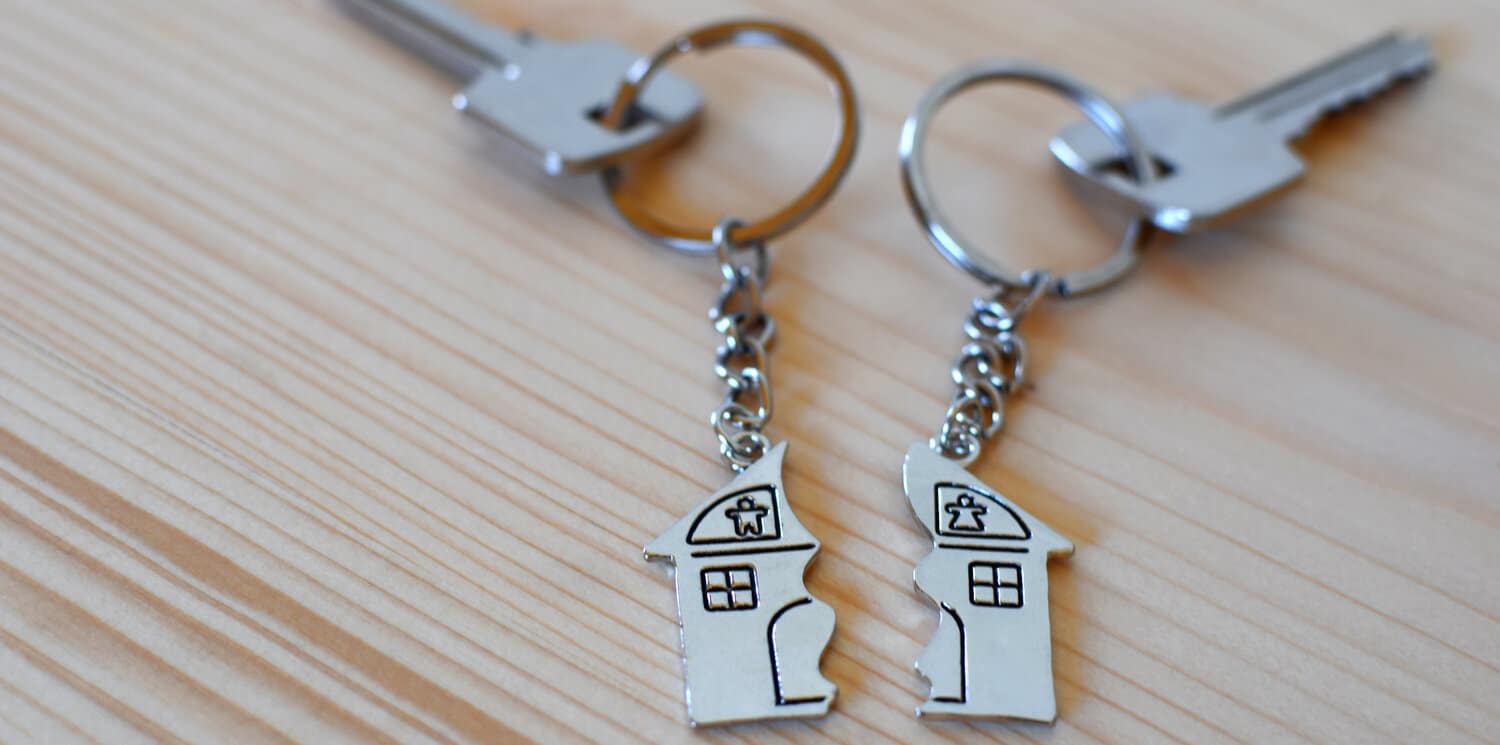Jasmine Birtles
Your money-making expert. Financial journalist, TV and radio personality.

Getting a divorce is a stressful process. There’s a lot of emotions involved and many things to sort out. A divorce checklist helps you make sense of everything – and make sure you don’t miss out on money you’re entitled to when you separate.

A DIY divorce is where you reach an agreement without involving solicitors or judges. In short – you do it all yourself.
It can save you money if your situation is straightforward and you both agree on the details. It can also help keep things amicable as the more official routes can add hostility. A DIY divorce is usually easiest if you haven’t been married very long, you don’t own property together, and you don’t have children. Owning property, having children, or sharing a lot of joint expenses starts to complicate things – so that’s when a solicitor is needed.
However, a DIY divorce can end up costing you more if you don’t know what you’re negotiating. You risk being left financially worse off in the long run if your ex has assets or money they haven’t disclosed to you.
If you know your situation is more complex, you may want to get a lawyer involved sooner rather than later. You may gulp at the initial expense, but it will saved you money in the long run.
Tensions run high in the lead up to and during a divorce, so arguments are bound to happen. But, where possible, try to keep your cool and avoid unnecessary arguments. Not only will this reduce the stress of the process – it could help you secure the finance you’re entitled to instead of bartering poorly in an argument!
Avoiding court can help. A good starting point can be mediation. Here, you can try and reach an agreement amicably, without having a judge dictate what you can and can’t do. Using an alternative to court – like a family mediation solicitor – can save you thousands of pounds and help negotiate when children are involved.
No fault divorce has finally been approved by Parliament for England and Wales, but it won’t be implemented until Autumn 2021. This means that, if you want to divorce now, and unless you’ve been living separately for years, you have to assign blame to someone. The most common reasons are adultery and unreasonable behaviour. Whoever files for divorce gets to give the reason and examples.
No one but you and the judge see them. Many believe it can influence the financial settlement, but this is a common misconception. Therefore, it really isn’t worth arguing about.
A financial consent order is a legal order made by the court. It makes the financial agreement that you have already reached legally binding for you both.
This order lays out what will happen to your property, pensions or other assets when you divorce. It can also detail how any ongoing payments may work between you.
There are court fees of £50 to submit an application, but your consent order should be drafted by a solicitor, experienced in family law. In theory, you could draft one yourselves, but it may be declined or not cover you both as you want, especially if it is not worded correctly. A judge will consider everything in the order – and can refuse to grant it without certain adjustments. For example, if they feel one spouse is being left without enough child support, they can request the changes before granting the order.
If you’re on a low income you can have the divorce fee waived at court. But, this only applies if you’re the one that files. If your spouse earns a lot more than you files for divorce, they can request that you pay even if you’re on a low income.
You can of course contest this, but this will add stress to an already stressful process.

There’s a lot of financial things to consider when agreeing to a divorce settlement. Here are some of the key ones you should think about.
This is one of the most obvious things to consider!
Are you going to sell your home? If so, how will you split the profits? Who put down what for the deposit – and who pays the mortgage repayments?
Both of you have the right to remain in the home until the divorce is granted. However, it usually means one person moves out into rented accommodation for a while – and these expenses should be considered in the FCO (especially if both are still making mortgage repayments on the property). Your spouse cannot legally sell the home without your consent if your name is on the deeds – if you think they might be trying to do this, contact the conveyancing solicitor immediately.
Even if only one of you is on the property deeds, you BOTH have the right to remain in the home until the court order for divorce (and the FCO) are granted. The spouse whose name is not on the deeds can apply for Matrimonial Home Rights with the Land Registry.
If you’re renting, where both your names are on the tenancy, both have the right to remain in the home. You can apply for a Notice to Quit, which moves the tenancy into one spouse’s name – and you’ll need to agree who pays the rent moving forward.
Some couples may have more than one home. In this case, you need a different arrangement for each property.
Most couples have joint savings accounts as their financial goals will be aligned. How will you split these? Are you going straight 50/50 or will you work out who paid what into it and take your own money back?
You also need to decide how you will split individual savings and investment accounts. Just because the account is in your name, it doesn’t mean these will automatically be given to you.
What other assets do you own together?
Anything of significant value should be discussed and agreed upon in your financial consent order.
You should consider what has value to you. If you have a particular attachment to a painting or ornament, you could prioritise these in the financial settlement.
Alternatively – do you need the car to get to work or to take your children to school?
Make sure you’re aware of all your assets you own, so none get forgotten or left out of the agreement.
For couples with children, this is obviously a top priority.
Child arrangements are usually an informal agreement, but it’s a good idea to keep a record of them. You’ll only need to go to court if there’s been violence or abuse in your relationship, or you really can’t agree.
When making these arrangements, you should consider where the children should live and how many days and nights they should spend with each parent. Once you’ve agreed this, you can work out how much child maintenance you will receive or pay. This gov.uk calculator offers a suggestion of what this amount might be for you.
You will not be legally required to pay anything through the Child Maintenance Service if you are: sharing care equally with the other parent, a full-time student with no income, or in prison.
Due to Covid-19, you might need to change your child arrangements if someone in a household where your child usually stays has coronavirus symptoms.
You should try to agree on changing the arrangements with the other parent. You can agree to change them even if you have a child arrangement order from a court, as long as you’re following the Government’s guidance. It’s a good idea to keep a record of what you’ve agreed – for example, you could follow up your conversations with an email.

In English law, pets are seen as property. This means – unlike with children – you can’t have a custody agreement for a pet enforced in law.
However, there is nothing stopping you creating your own informal agreement if you’re both on the same page.
A common solution for couples with children is that the pet goes with the children between each parent’s house. As an added benefit, this gives the children some much needed continuity.
Pets are something you should really try and agree on, because if you can’t a judge can order you to sell them and split the profits.
A lot of people overlook pensions when getting divorced, but they are crucial to your long-term financial security.
Those people who divorce later in life have less time to build a retirement pot if they don’t have a pension of their own. This means having the right to divide this asset is of vital importance to avoid slipping into poverty during retirement.
Not many people realise that you can claim up to half of your spouse’s pension if you stopped working or took less work to become a primary care giver.
Couples have three different options for how they divide pension assets between them. These are:
This is where pension assets can be offset against other assets, such as the family home.
Introduced at the turn of the millennium, this is where pension assets are divided at the time of divorce in an agreed proportion and there is a clean financial break.
Also known as pension earmarking, where the pension provider of one party pays an agreed amount direct to the former spouse when the pension rights come into payment.
This divorce checklist should cover most things you need to think about. Navigating a divorce is a stressful time – but make sure you keep your head about you so you don’t miss out on your financial rights. Read these next!
*This is not financial or investment advice. Remember to do your own research and speak to a professional advisor before parting with any money.

Very good advive for this difficult situation.